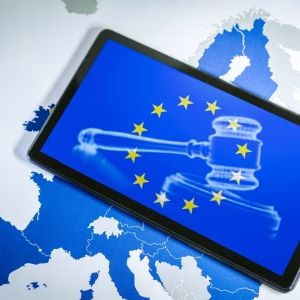
The UK government this week laid out a blueprint for regulating digital technology. Although the Digital Regulation Plan acknowledges the tension between innovation and safety, it indicates a broadly deregulatory approach ahead. But experts are concerned it provides little in way of concrete foresight at a crucial time for UK businesses’ digital strategies.

What does the UK’s Digital Regulation Plan involve?
The Digital Regulation Plan, unveiled by secretary of state for Digital, Culture, Media and Sport Oliver Dowden, lays out the government’s principles and objectives in regulating “the impact that digital technologies and activities can have on individuals, companies, the economy and society”. Key areas of digital regulation include competition in digital market; privacy and data protection; and online content.
The plan identifies three objectives, namely driving growth and innovation across the digital sector; ensuring this growth and innovation does not harm citizens or businesses; and to “shape a digital economy that promotes a flourishing democratic society”. And it lists three principles that the government will pursue through digital regulation: to actively promote innovation; to achieve forward-looking and coherent outcomes (meaning that regulators in different fields will collaborate); and to exploit opportunities and address challenges in the international arena.
Greg Taylor, associate professor at the Oxford Internet Institute, describes the plan as “a very political document. It doesn’t take any risks [and] doesn’t commit to many concrete policy changes”. Nevertheless, he says, “it’s possible to read between the lines [to see] the direction of travel that the government has in mind”. For example, Dowden remarks in his foreword that he expects the government “to take a deregulatory approach overall”.
However, there is unlikely to be significant deregulation in either privacy or competition in the near future, says Taylor. “On privacy, we wouldn’t [expect to] see a lot of deregulation, partly because GDPR has become a de facto global standard, and partly because the debate is really about protecting privacy and consumer data rights more, rather than less.” Similarly, the direction of travel in competition policy is towards greater regulation – the UK’s Competition and Markets Authority set up a dedicated Digital Markets Unit earlier this year.
Instead, Taylor expects any deregulation to focus on “taking away some of the barriers to innovating and deploying new technologies”, in areas such as AI-driven financial services and driverless cars. “I think what they’re signalling is that they want to do [regulation] in a way that favours firms that have new ideas and want to try new approaches,” he says.
What does the UK’s Digital Regulation Plan mean for businesses?
Alan Brown, professor in digital economy at the University of Exeter’s Business School, says the plan correctly identifies “a series of dilemmas” that will be familiar to executives leading digital strategy. It represents “quite a good description of the challenges [businesses] face as they try to balance speed with discipline, and the need for innovation with the need for some stability,” he says.
What’s missing, he says, is detail. “The challenge for organisations is how do they interpret [the plan] in terms of their medium and long-term strategies,” he explains. The plan provides “a very useful statement of intent but it doesn’t give you a sense of exactly what the government is planning to do and when. And that makes it very difficult for people who are in strategic roles at organisations to align with it.”
This creates added uncertainty at a crucial moment, says Brown, with businesses dealing with the fall-out from the Covid-19 pandemic and the changes brought about by Brexit. “I think there is an expectation that [the UK] is going to accelerate our way out of the current crisis,” he says. But organisations are “feeling overwhelmed by the challenges coming from multiple directions,” he adds.
“We know we’re in an environment that’s changing rapidly, but there has to be some consistency somewhere, something that provides guardrails that [UK businesses] can begin to work around to build the other pieces,” Brown says. Without more clarity on the government’s specific plans in the digital arena, “I think they’re not quite sure [where] to place their bets on right now”.






